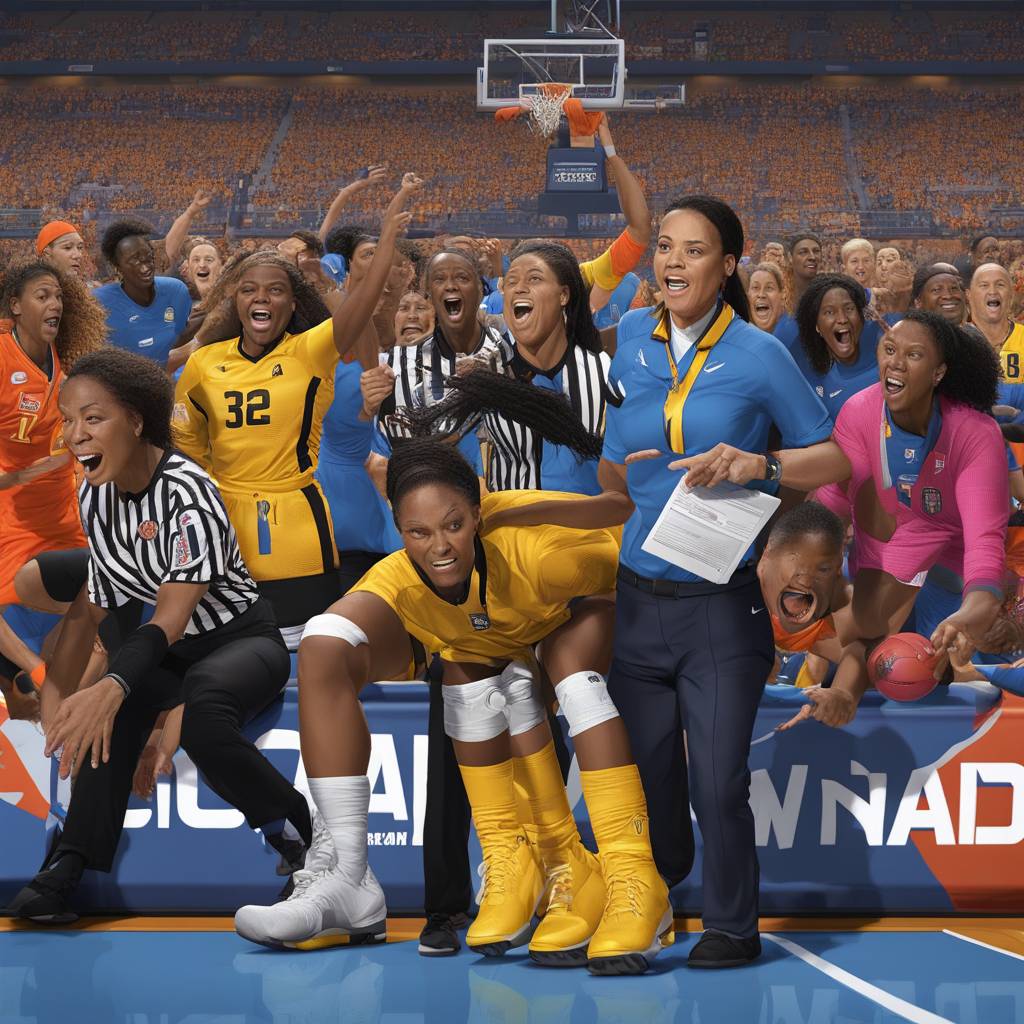During a women’s NCAA tournament game between N.C. State and Chattanooga, referee Tommi Paris was pulled from the game at halftime due to a “background conflict.” Paris was replaced by Angelica Suffren in the middle of the game. The NCAA stated that Paris had a background conflict that, if known, would have prevented her from officiating the game. It was later revealed that Paris had received a master’s degree from Chattanooga, which she failed to disclose before the game. The NCAA requires all referees to disclose any affiliations with schools in the tournament to avoid conflicts like this.
Angelica Suffren, who had previously worked the Green Bay-Tennessee game earlier in the day, took over as the referee for the second half of the game between Chattanooga and N.C. State. Chattanooga head coach Shawn Poppie expressed surprise at the sudden switch, noting that he was informed of the change in referees after the game. Poppie mentioned that this was only the second time in his career that such a switch had occurred, with the previous instance involving an injury that was easily noticeable. Despite the last-minute change, N.C. State went on to win the game with a final score of 64-45.
The NCAA’s decision to pull referee Tommi Paris from the game highlights the importance of transparency and preventing conflicts of interest within officiating in college sports. By requiring referees to disclose any affiliations with schools in the tournament, the NCAA aims to maintain fairness and integrity in the games. The incident serves as a reminder of the ethical responsibilities that referees have in upholding the standards of the game, and the consequences of failing to disclose potential conflicts of interest that could affect the outcome of matches.
The abrupt change in referees during the N.C. State vs Chattanooga game raises questions about the impact of such situations on the game itself, as well as the reactions of coaches, players, and fans. Coaches like Shawn Poppie expressed surprise and confusion at the switch, highlighting the disruptive nature of last-minute changes in officiating. While the ultimate result of the game was not drastically affected by the switch in referees, it underscores the importance of maintaining consistency and transparency in sports officiating to ensure a fair and competitive playing field for all teams involved.
As the NCAA tournament continues, the incident involving referee Tommi Paris serves as a cautionary tale for officials and a reminder of the standards expected of them in their roles. Referees play a crucial part in overseeing college sports competitions and upholding the rules of the game. By adhering to guidelines set by organizations like the NCAA and being transparent about any affiliations that could present conflicts of interest, referees can help maintain the integrity and credibility of the games they oversee. The incident also prompts reflection on the broader implications of conflicts of interest in officiating and the measures needed to address them effectively in the future.



